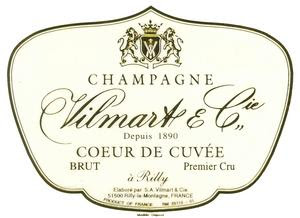
Todd (our Winebar manager and Cheesemeister) was featured in December's issue of Orange Coast Magazine.
A great read.
By Anne Valdespino / Photography by Jason Wallis
If you shop at Hi-Time Wine Cellars in Costa Mesa you’ve probably seen him, and if you hang around the tasting room you know him personally. Todd Johnston, the guy with the Chinese tattoos, the motor mouth, and the rakish, hip-guy charm, stocks the cheese case and runs the tasting bar like a Vegas pit boss. The 34-year-old Newport Beach native—a self-described third-generation Hoag baby—attended culinary school at
Orange Coast College. His specialty is European wines; he loves Rhones and Champagnes. California cabernet bores him; he says he has never been to Napa.
Cork. Synth or real?
Synthetic. I’ve opened too many bottles of corked wine that I’ve saved for a long time and it really [ticks] me off.
Favorite bubbly at the moment?
José Dhondt Brut Rosé de Saignée Champagne ($56.98).
Favorite red?
Jaboulet ’98 La Chapelle Hermitage ($300). It’s the poster child for a better Rhone. Super dry, earthy. Bramble. Briar. Liquid beef jerky.
How many wines do you taste in a shift?
Between 10 and 30.
Worst wine you’ve ever tasted at work?
We have a list. And the bad ones are just as memorable as the great ones. It’s a Zen way of looking at it: “Oh my God that is so bad. It’s great!”
Favorite seduction wine?
Moscato d’Asti Nivole by Michele Chiarlo ($12). I’m a firm believer
that Moscato d’Asti is best served in a bellybutton.
Cork dork or wine geek?
Grape nut.
Worst tasting-room faux pas?
I had a patron spit into my glass. She said, “Oh my God. I’m so sorry,” grabbed it, and drank it. Her husband said, “We’re done. Let’s go, honey.”
Your taste in vino is pretty expensive. Any regrets about developing your palate?
There was a time when I drank Mouton-Cadet and thought, “This stuff’s great!”
I long for those days. I’m not gonna lie.
So, steer us to a great deal.
I drink tannat [a varietal] from Uruguay, Viñedo de los Vientos 2006.
It’s $16, I love it.
So, California cabernet bores you. Got anything against chardonnay?
I hate California chardonnay and I love blanc de blanc Champagne [made from the same varietal]. The Champagne guy here says it’s because blanc de blanc is the purest expression of the varietal, not mucked up with
oak and malolactic fermentation.
Is most chardonnay overstyled?
Kendall-Jackson came along in the ’80s and convinced housewives that’s what chardonnay should taste like. They wrecked it. They killed it.
Can you hit the spit bucket from three feet like they do in France?
I’m Scottish. We don’t believe in spitting. Call it the industrial liver.
Favorite wine-and-cheese pairing?
Morbier and Crozes Hermitage. It’s a serious cheese and a serious wine.
What should we drink with our turkey?
Chenin blanc, Vouvray, and Champagne.
Most underrated region?
Südtirol (Italian Alps).
Most overrated region?
Burgundy and the whole state of California. I’ll take Washington over California any day.
What does a dude need to know about wine to impress a woman?
Guys do that I-don’t-drink-white-wine thing. That’s ridiculous. It pays to have an open palate. It’s a lot more important to keep her happy than to spout off about your wine knowledge.
Does the ignorance of some customers amuse or annoy you?
I aim for mockery of the customer, but I don’t want them to feel bad. I strive for the insult that they don’t get until they’re driving home. “Wait! What?” Just kidding. I like my customers.
Do you have to be a super taster to do your job?
Not at all. It’s more about dealing with personalities. The cougars down at the end of the bar want something completely different than the serious wine tasters over here, or the novices in the corner; they’re my favorite. They’re so excited to learn about wine, they’ll try everything. •
Hi-Time Wine Cellars
250 Ogle St.
Costa Mesa
949-650-8463



















